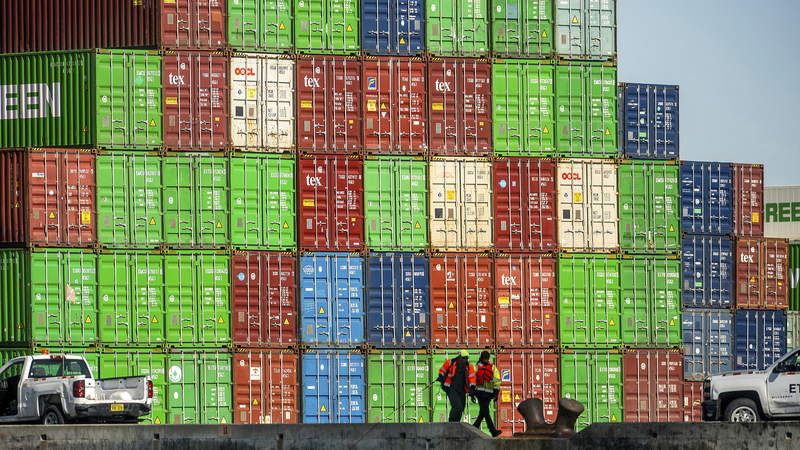In a seismic shift to global trade dynamics, U.S. customs agents began collecting a unilateral 10% tariff on imports from many countries as of 12:01 a.m. Eastern Time Saturday. This bold move, announced by President Trump, represents a decisive break from post–World War II tariff agreements.
With higher reciprocal tariffs set to affect imports from 57 major trading partners next week, experts are already reacting. Trade lawyer Kelly Ann Shaw described the measure as "the single biggest trade action of our lifetime," noting that as nations negotiate for lower rates, these duties could evolve and reshape global economics.
The dramatic announcement sent shockwaves through global stock markets, wiping out an estimated $5 trillion in value for S&P 500 index companies over just two days. Amidst recession fears, investors have flocked toward safer assets like government bonds while oil and commodities prices plummeted.
Countries such as Australia, Britain, Brazil, Colombia, Argentina, and Saudi Arabia are among the first to face the new tariffs. U.S. Customs and Border Protection offered a 51-day grace period for cargo loaded or in transit before the cutoff, urging importers to complete shipments by May 27 to avoid the duty.
The evolving tariff regime imposes varied rates: European Union imports will face a 20% levy, while goods from the Chinese mainland are set to incur a 34% charge, pushing the cumulative rate on these products to 54%. In response, Chinese authorities remarked that "the market has spoken," introducing countermeasures such as extra levies on U.S. goods and export restrictions on select rare earth minerals.
Global leaders are weighing in on the unfolding trade tensions. French President Emmanuel Macron stressed that a trade war is in no one’s interest, calling for unity to protect both citizens and businesses. Meanwhile, British Prime Minister Keir Starmer and representatives from Israel, Japan, and Vietnam have initiated talks with U.S. counterparts to explore viable adjustments, even as Italy’s Economy Minister cautioned against the risks of retaliatory tariffs.
Although the new order exempts roughly 1,000 product categories—including pharmaceuticals, uranium, and semiconductors—the shifting trade policies continue to stir debate among market analysts and policy experts. This historic move heralds a significant departure from decades of established trade norms, leaving international markets and policymakers closely monitoring its far-reaching impact.
Reference(s):
cgtn.com




